Middle East
The Take: US-Iran nuclear talks resume. What’s at stake now? | Nuclear Weapons News

Iran and the United States are holding indirect nuclear talks, mediated by Oman, with the next round set for Saturday. Both sides report progress, but major gaps remain. Iran seeks sanctions relief and civilian uranium enrichment, while the US insists on stricter limits. Could this be the moment the long-stalled negotiations finally produce a breakthrough?
In this episode:
Episode credits:
This episode was produced by Amy Walters, Khaled Soltan, and Tamara Khandaker with Sarí el-Khalili, Phillip Lanos, Spencer Cline, Mariana Navarrete, Kisaa Zehra, Remas Alhawari, Kingwell Ma, Marcos Bartolomé, Manuel Rapalo, and our guest host, Natasha Del Toro. It was edited by Noor Wazwaz.
Our sound designer is Alex Roldan. Our video editors are Hisham Abu Salah and Mohannad Al-Melhem. Alexandra Locke is The Take’s executive producer. Ney Alvarez is Al Jazeera’s head of audio.
Connect with us:
@AJEPodcasts on Instagram, X, Facebook, Threads and YouTube
Middle East
Tunisian judge orders detention of prominent lawyer Ahmed Souab | News
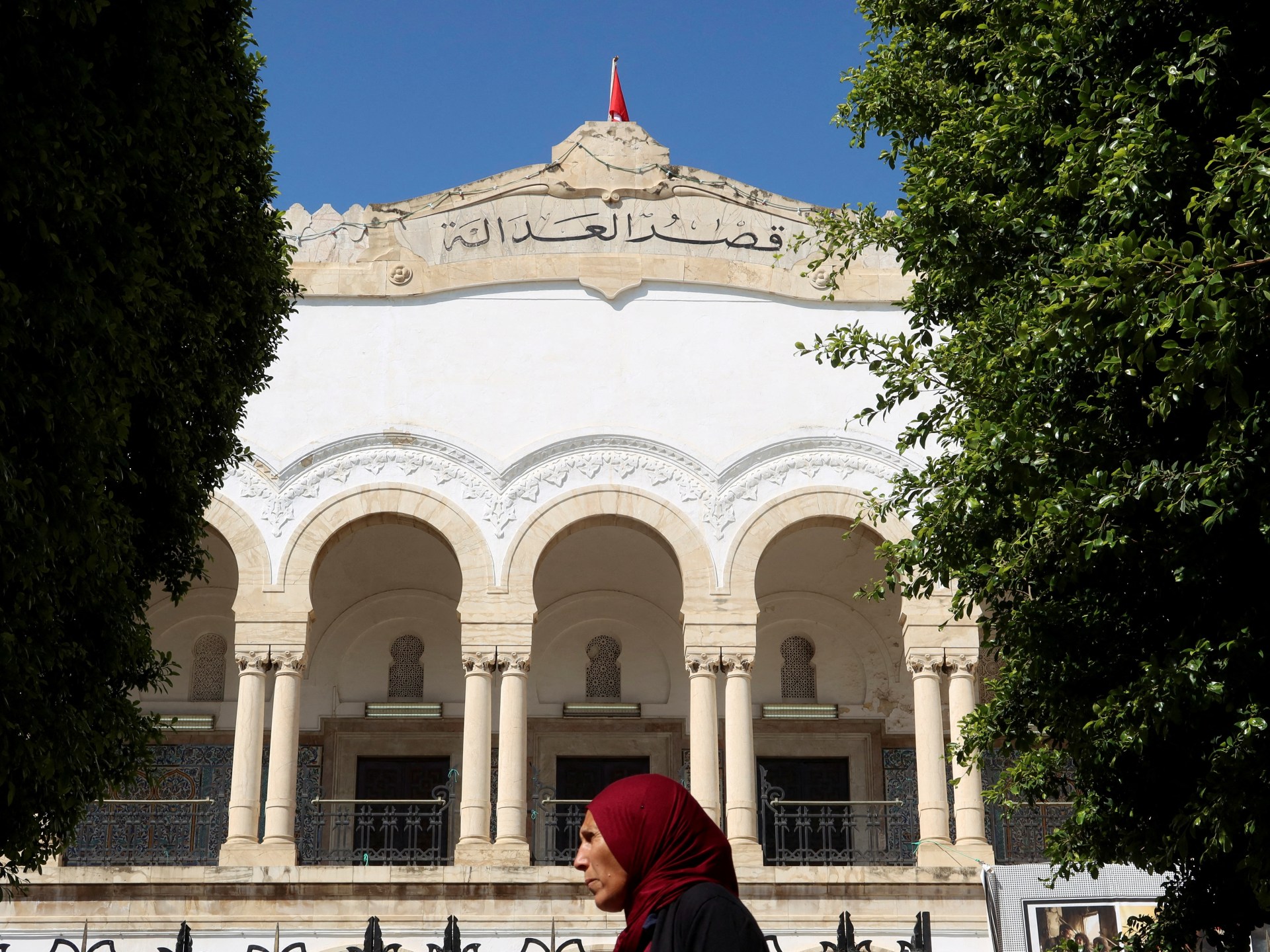
Souab is a fierce critic of President Kais Saied and was arrested for comments about the judiciary acting under duress.
A Tunisian judge has ordered the detention of prominent lawyer Ahmed Souab, a fierce critic of President Kais Saied, lawyers said, two days after his arrest for comments about the judiciary.
Souab’s arrest sparked widespread anger among political parties and civil society groups, which said the move was a dangerous escalation of a crackdown on dissent and marked a further entrenchment of the country’s authoritarian regime.
Activists took to the streets in protest this week, calling for his release, chanting slogans against Saied and demanding an end to the harassment, silencing and imprisonment of critics.
Souab was on the legal defence team in the mass trial last week, in which dozens of defendants, including vocal critics of Saied, were handed jail terms of up to 66 years.
The lawyer was arrested on Monday in a police raid on his home in the capital Tunis, after saying before his clients’ sentencing that “knives are not on the necks of detainees, but on the neck of the judge issuing the ruling,” criticising political pressure judges were allegedly under.
An anti-terrorism court interpreted the comment as a threat to the judges, but Souab’s lawyers said it was a reference to the huge political pressure on judges.

Souab had been detained on “terrorism-related charges” over the comment, a spokesperson for the court said.
Souab is a retired administrative judge and lawyer, and a vocal critic of Saied, who has repeatedly said the judiciary had lost its independence.
His lawyers boycotted Wednesday’s hearing after the judge informed them that he had accepted the representation of only four lawyers out of the dozens present to defend him.
Saeb Souab, the detained lawyer’s son, told journalists that “based on a metaphor, my father is now suspected of terrorism”.
Addressing President Saied, his former law professor Saeb Souab said, “This is not the law you taught us.”
He called for the release of his father, who he said suffers from heart problems.
‘Hasty trial’
Since Saied launched a power grab in the summer of 2021, rights advocates and opposition figures have decried a rollback of freedoms in the North African country where the 2011 Arab Spring began.
Critics have denounced the recent mass trial as politically motivated and baseless. The defendants faced charges including “conspiracy against state security” and “belonging to a terrorist group”, according to their lawyers.
Among those targeted are figures from what was once the biggest party, Ennahdha, such as the leader and former Speaker of Parliament Rached Ghannouchi, former Prime Minister Hichem Mechichi, former Minister of Justice Noureddine Bhiri, and Said Ferjani, a member of the party’s political executive.
But the crackdown has also hit many non-Ennahdha figures, including Abir Moussi, a fierce critic of Ennahdha, and Abderrazek Krimi, the project director of the Tunisian Refugee Council.
Some of them had been arrested in February 2023, after which Saied labelled them “terrorists”.
“The Tunisian court did not give defendants so much as a semblance of a fair trial,” said Bassam Khawaja, deputy Middle East and North Africa director at Human Rights Watch.
Tunisia was “making it clear that anyone participating in political opposition or civic activism risks years in prison after a hasty trial without due process”, he added.
Several Tunisian legal scholars also denounced in a petition on Tuesday “flagrant violations of all the bases of a fair trial”.
Middle East
‘I don’t know where I will go’: Refugees run out of options in Tunisia | Migration News
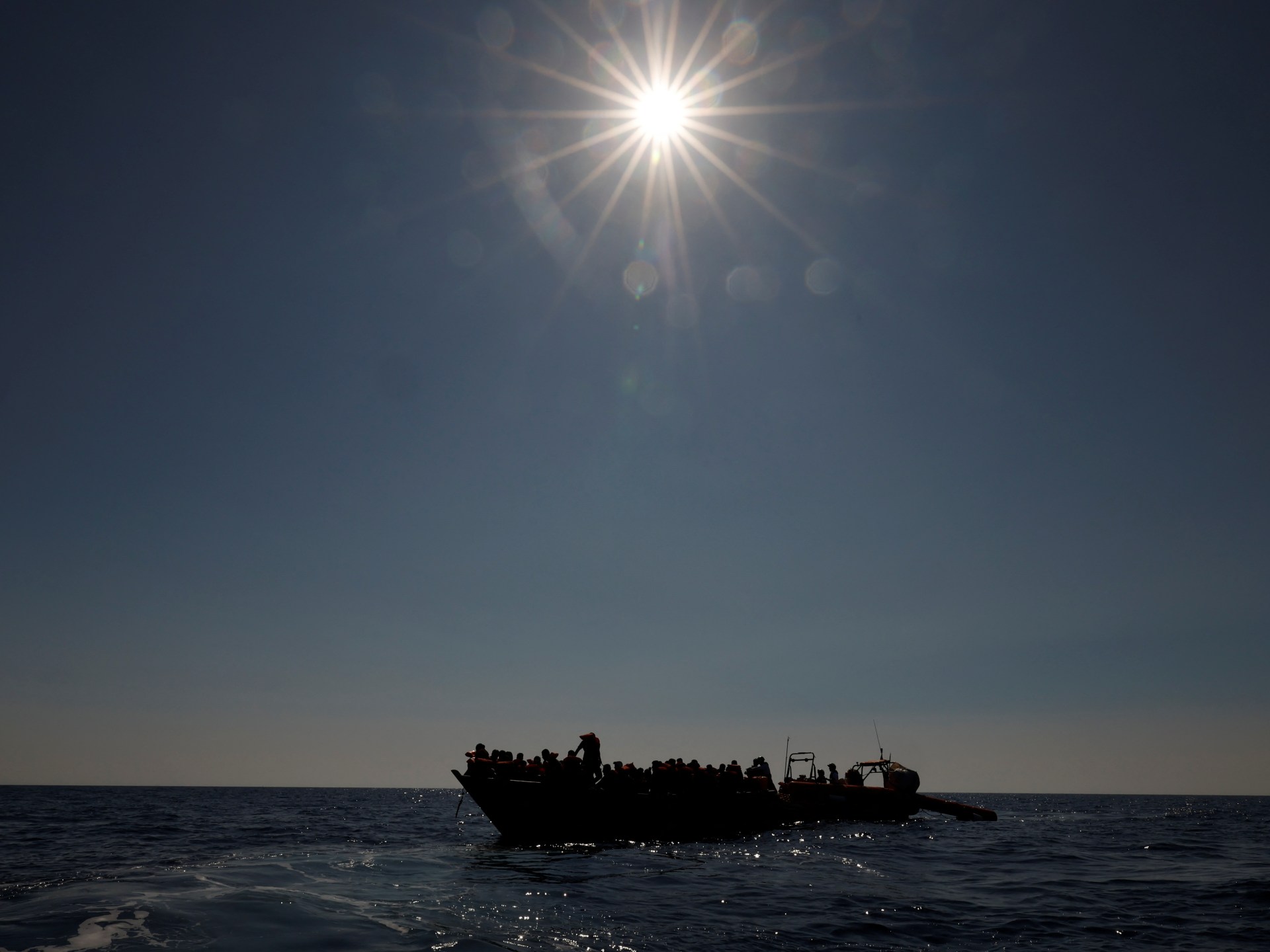
Patricia is sobbing over the phone.
About a dozen Tunisian policemen came to her camp this morning to tell her and the other refugees, asylum seekers and undocumented migrants living rough in the olive fields outside of Sfax, a coastal city in Tunisia, that they had to leave.
They gave them 48 hours.
The police didn’t tell them where to go, only that they couldn’t move to any of the 15 or so camps that have grown outside of the city since police first expelled its refugee population in September 2023.
Patricia, a nurse, had been working for months from her makeshift clinic at Kilometre 33 – named, like all the temporary settlements outside of Sfax, for its distance from the city.

Now she doesn’t know where she, or the old, the infirm, or the children and the nursing mothers who congregate around her clinic, will go. No one has any illusions about what will happen at the end of the deadline.
Other camps swept up in the three-week-old police operation to clear the olive fields have been demolished with heavy equipment and burned. Anyone resisting has been arrested.
“I don’t know what I will do,” she says. “I don’t know where I will go.”
Patricia and others had hoped their camp might be safe. The elders, or “stakeholders”, who settle disputes between camp residents, had contacted security officials, imploring them to spare the relatively quiet Kilometre 33.
It hasn’t worked.
Now, she must wait for either help or the arrival of the police.
A few months ago, she applied to the International Organization for Migration (IOM) to go home to Sierra Leone.
She is still waiting for a response.
Life as a midwife
Speaking to Al Jazeera a few days earlier, amid the clamour of her clinic, Patricia had described wanting to be a nurse since she was a girl living with her parents and younger sister in northern Sierra Leone’s Makeni.
She remembered her father, a driver for a mobile telephone network, taking her on trips from Makeni to the family’s village, where she would see how other children lived.
“I would take water and medicine to the children and tell them how important it was to take their medicine,” she said.
“There was a nurse there, Aisha, who I would help. She told my daddy: ‘Watch her. This one will be a nurse.’”

Patricia qualified as a nurse and ultimately decided to focus on midwifery.
“I’m still a nurse here. I have my licence with me,” she said, describing how she takes her qualifications with her to plead at nearby pharmacies for the medicines she needs to treat others at the settlement.
“My daddy was so happy when I graduated [in 2020]. He thought everything was going to be OK. I wanted especially to be a midwife. I liked the deliveries and working with children,” she said.
However, Patricia’s world ended on April 22, 2022, when her father was in a car accident.
Without the funds to pay for his treatment, the hospital where Patricia had worked for years refused to treat him, simply offering him a bed where, a few days later, he died.
Walking for days without water
A phone call from a friend after her father’s death changed her life’s course.
The unnamed man, from her family’s village, had made the journey through Tunisia to Europe seven years ago and was ready to help.
Patricia recalled the conversation. “He said: ‘You have nothing, how can you survive?’ and asked me if I would like to go on this journey [to Europe]. I said, I have no money, and he said it was OK. He would pay, but I could not fly. I would have to take transport and walk.”
Finding transport to take Patricia through Guinea and Mali was straightforward. But in Algeria, she had to walk.
“Sometimes we would walk for days, we had no water. I saw people die. Sometimes my friend would call me and give me courage. He would say: ‘You have to go on.’ But it was so hard.”

Eventually, in April 2024, the young woman who had never left her home country crossed into Tunisia and met the smugglers, or “bogan”, who took her to Kilometre 33, then to three failed crossings to Europe and, now, total uncertainty.
“[When I arrived] They said we’ll leave tomorrow,” she recalls. “I looked around and saw all the people with no food or shelter, and thought, if they can do it, I can do it for one night.”
But “then [a smuggler] brought the plastic [to set up a shelter] and I thought, why do we need this if it’s only for one night?”
“The next day, he said the weather was bad … every time, there was an excuse.”
More calls were made by Patricia and her friend, and more smugglers were contacted. In June, a little over two months after she arrived, she attempted the first of three failed crossings to Europe.
The third, just last month after a second attempt in October, saw her and others reach international waters, only to be pulled back by Tunisian security forces and dumped without phones, money or directions, in the desert.
“We were there for 16 days. I often felt like dying. There was no sign of rescue.
“All around us were bad people; the police, the Tunisian mafia [robbers who attacked, hoping they had something to steal],” she says.
There will not be a fourth crossing, she says.
Unclear ‘how human rights respected’
Throughout her time in Tunisia, the authorities have harassed people living in the camps outside Sfax.
Now, reportedly under the personal direction of President Kais Saied, they have promised to clear them all, justifying it as a response to Tunisian farmers’ complaints that they are unable to access their olive groves.
Announcing the programme in early April, a National Guard spokesperson said camps in the al-Amra and Jebeniana areas, north of Sfax, had already been cleared “peacefully”, with the support of the Red Crescent, the Health Ministry and the Civil Protection agency.
About 4,000 people of various nationalities had left one camp, they said, with an unspecified number “dispersed into the countryside” and health authorities taking charge of pregnant women and the infirm.
However, none of the refugees Al Jazeera spoke to after the operation knew of any assistance being offered to the vulnerable.
Tunisia’s Ministry of the Interior, which oversees both the police and the National Guard, has yet to respond to Al Jazeera’s request for comment.
“[Authorities are] trying to frame their latest operation, which was accompanied by a propaganda campaign, as … supposedly respecting human rights,” Romdhane Ben Amor, of the Tunisian Forum for Economic and Social Rights (FTDES), said.
“It’s unclear how human rights are being respected with bulldozers, heavy machinery and actions like burning the small cloth or plastic tents of migrants,” he said.

Destination unknown
The current location of many of the people expelled from the camps remains unclear.
Al Jazeera spoke to some who say they are still wandering the olive fields, hiding from the police.
Ben Amor suspects others have been bussed to the border with Algeria and abandoned in the desert, something that has happened before.
The question of where these people may have ended up, or where Patricia may go, has not been posed by the national press, which is more focused on what Ben Amor describes as “propaganda” justifying bulldozing camps.
Speaking to a radio station earlier this month, Member of Parliament Tarek Mahdi channelled the president’s claims that Tunisia was in “imminent danger”, made in February 2023, as “births among migrant women have reached 6,000 births in a short time”.
Patricia, on the other hand, just wants to know where she and her patients will sleep in two nights’ time.
She cannot face continuing her journey to Europe, and officials have yet to contact her about returning home.
“Why do they want to hurt us?” she asked. “We are humans, too.
“All that is different is the colour of our skin.”
Middle East
‘I grabbed my cat and ran’: Istanbul panics as earthquake hits | Earthquakes News
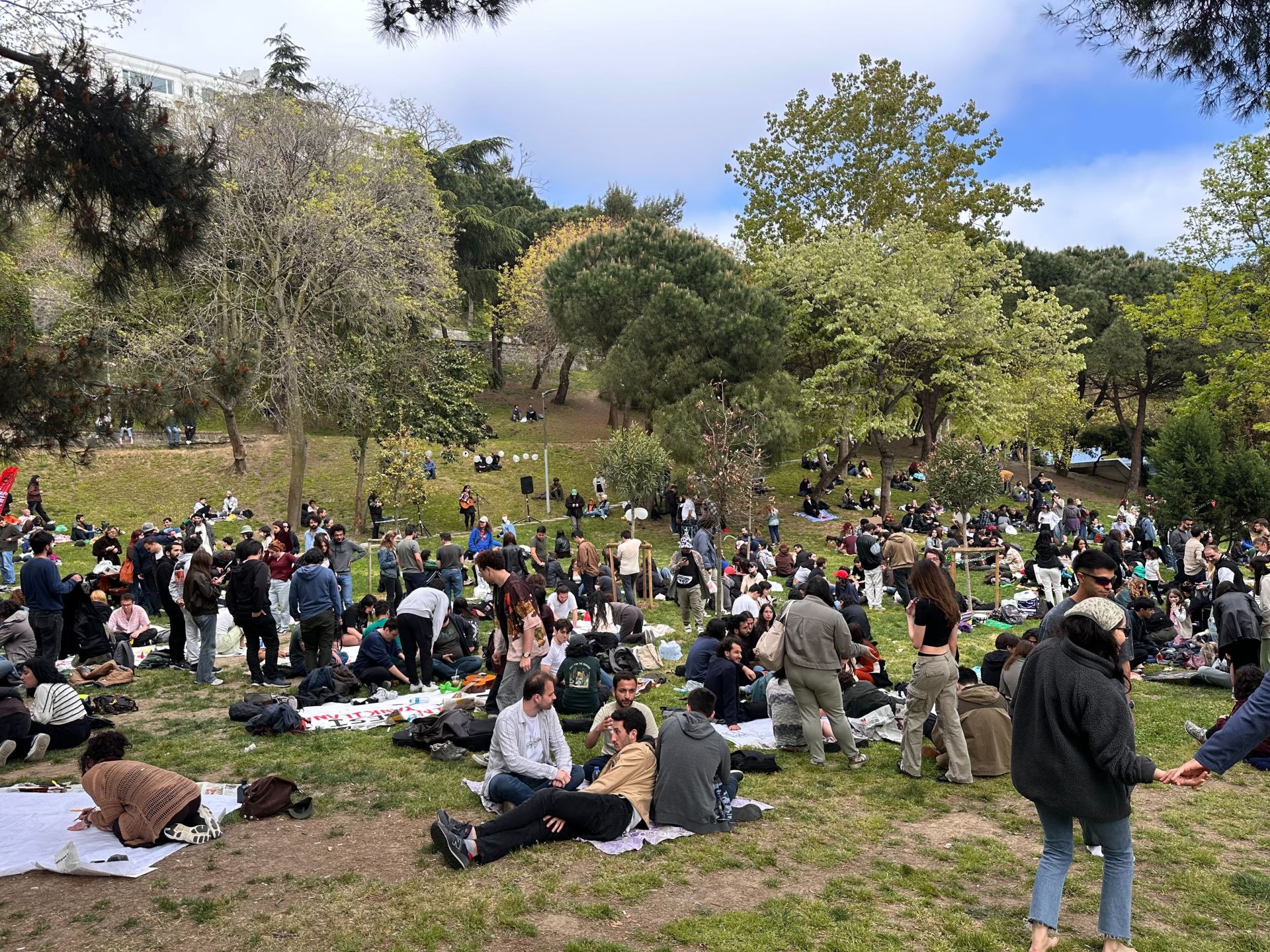
Istanbul, Turkiye – For five terrifying seconds, buildings shook, shelves toppled, and panic rippled through Istanbul, Turkiye’s cultural and economic heart.
The ground beneath Istanbul trembled at 12:49pm (09:49 GMT) on Wednesday, sending millions scrambling into the streets as a magnitude 6.2 earthquake struck in the sea off the city’s western coast. Several smaller aftershocks have followed, with magnitudes of between 3.5 and 5.9.
No major damage was reported according to authorities, although Istanbul Governor Davut Gul said that at least 151 people were injured after jumping from heights to escape in a panic.
![People camp out in Macka Park, Nisantasi, as they are scared to go back home following the aftershocks [Elis Gjevori/Al Jazeera]](https://www.aljazeera.com/wp-content/uploads/2025/04/IMG_4487-1745413224.jpg?w=770&resize=770%2C578&quality=80)
The quake, centred near Silivri in the Sea of Marmara, revived painful memories of past disasters and left residents grappling with fear over what might come next.
In the upscale Nisantasi district, 69-year-old Bilge was at home when her building suddenly rattled.
“People in the building screamed ‘earthquake!’ and ran outside. My hands wouldn’t stop shaking,” she told Al Jazeera, describing crowds spilling onto the sidewalks, clutching phones to check on loved ones.
Nearby, coffee shop workers rushed out into the street. “We were just calling our families,” one said, as aftershocks continued to ripple across the city.
The earthquake coincided with National Sovereignty and Children’s Day, a public holiday, leading to the cancellation of events and heightened public anxiety.
Parents were seen walking through the streets with their children still dressed for celebrations.
“I was on the seventh floor, just about to make lunch,” said Zeynep Karatas, 41, a freelance designer from Sisli who had come to Nisantasi’s Macka Park with hundreds of others who wanted the safety of an open space.
“The walls in my building cracked, the glasses clinked. I didn’t wait – I grabbed my cat and ran,” said Karatas.
She joined dozens of neighbours already gathered outside. Some clutched pets, others their phones, trying to contact relatives. “We all ran out together. Strangers were helping elderly people down the stairs. I felt like crying,” she added.
Some in the park are anxious, and say they will stay awake as long as possible at night. Others are planning to pack a small bag in case they need to leave their home quickly.
Turkiye’s emergency authority AFAD has warned residents to stay alert, as aftershocks can continue for hours, even days.
History of earthquakes
While initial reports indicated little structural damage, the psychological impact was immediate.
“Everyone was talking about 2023,” said Baran Demir, 62, referring to the devastating earthquake that killed more than 53,000 people in southern Turkiye, and another 6,000 people in Syria. “You could see it on people’s faces, that same fear. My building didn’t collapse then, but the memory came rushing back.”
In Nisantasi, 35-year-old cafe worker Mehmet was helping usher customers outside when the aftershocks hit. “Everyone stayed calm, but the mood shifted fast. We just kind of held our breath. We thought this was the big one we’ve been waiting for.”
Residents of Istanbul have long feared a major earthquake hitting the city, as has happened in the past. Earthquakes with a magnitude greater than 7 have hit Istanbul in 1509, 1766 and 1894, causing thousands of deaths and large-scale destruction. A 1999 earthquake in Izmit, approximately 100 kilometres (62 miles) east of Istanbul, killed more than 17,000 people.
The city lies near the North Anatolian Fault, a major fault line that regularly triggers earthquakes.
Improved building codes in recent decades are designed to counteract the effect of earthquakes in the densely populated city, but many are still worried.
“I’m scared to sleep tonight,” said Gokhan, an elderly man who lives alone. “What if there are strong aftershocks tonight, I can’t move quickly,” he says with a wry smile. “If it’s my time, it’s my time.”
-

 Europe2 days ago
Europe2 days agoSimone Biles, Mondo Duplantis win big at 25th Laureus World Sports Awards
-
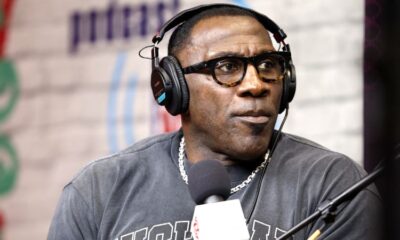
 Sports2 days ago
Sports2 days agoShannon Sharpe: Pro Football Hall of Famer and podcast star sued for sexual assault and battery
-
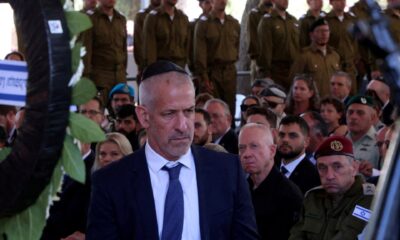
 Middle East2 days ago
Middle East2 days agoIsraeli spy chief accuses Netanyahu of demanding illegal operations | Politics News
-
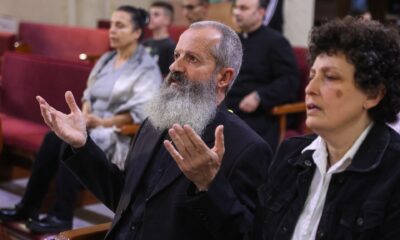
 Conflict Zones2 days ago
Conflict Zones2 days agoGaza’s Christians mourn death of Pope Francis | Israel-Palestine conflict News
-

 Sports2 days ago
Sports2 days agoSharon Lokedi smashes women’s course record at the Boston Marathon, John Korir wins men’s race
-

 Africa2 days ago
Africa2 days agoKenyan runners win both male and female races at Boston Marathon 2025
-
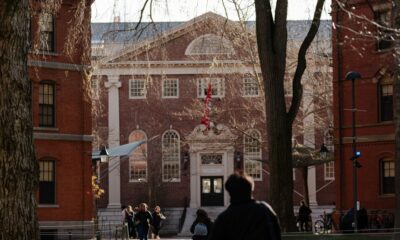
 Education2 days ago
Education2 days agoHarvard sues federal government after Trump administration slashed billions in funding
-

 Sports2 days ago
Sports2 days agoMavs GM Nico Harrison admits he was surprised by Luka Dončić’s level of popularity with fans following shock trade to Lakers




